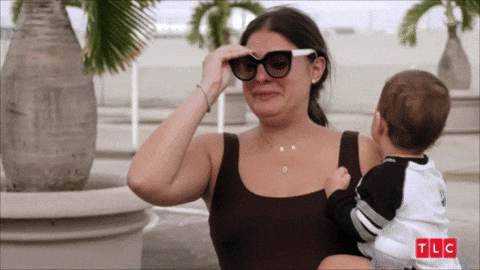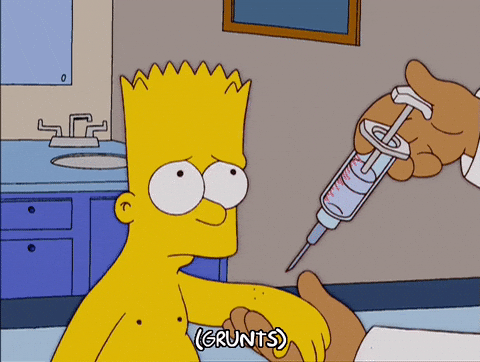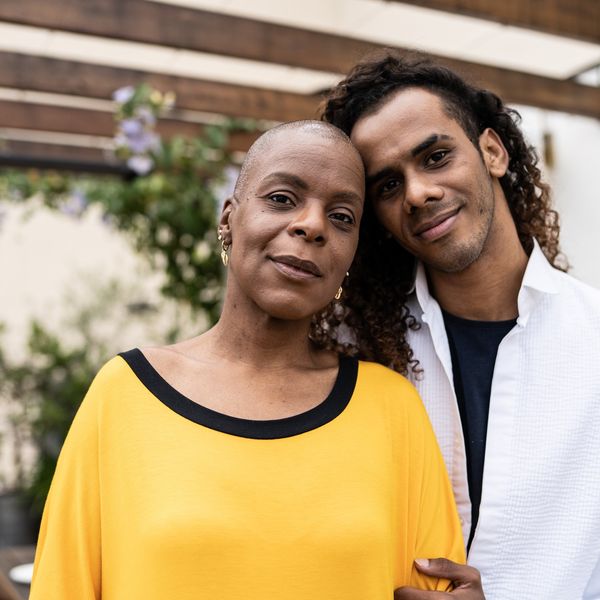
Food prostitution. Lawd, have mercy! As I was doing my daily check-in on YouTube recently, this was one of the video topics that popped up on my list of suggestions. Being that I'm pretty familiar with Tonya TKO's channel and content, I decided to check it out. The overall gist was a woman decided to social-media-humiliate a man she went out on a date with because he took her out for pizza. Tonya's overall point is there is some sort of breakdown in the woman's character to want to be so mean to the poor guy; that we shouldn't be out here acting like "food prostitutes".
For the most part, I agree. Although I must say that I think part of the reason why there is so much unnecessary-ness that happens on the dating scene is either because 1) we need to spend more time understanding the differences between dating and courting along with what actually makes for a good date (I'll take manners over money any day!) and/or 2) we jump to go on a date with someone before determining, ahead of time, if there is enough of a connection to even go on a date with said person in the first place (more on that in a second). I personally believe that if both of these points were taken to heart more often, dates would be so much smoother.
If you've got a hot date coming up, but you're a little anxious because you can't remember the last time you actually went on a good one, I've got a few suggestions that can make time before, during and even after the date so much less stressful on your mind, body and spirit. Tips that will keep you and your date from feeling like you both had anything less than a good time.
1.Get Your Mind Right
A couple of days ago, I checked out a video by a YouTuber named Asha C. The title of it was "5 Guaranteed Ways to Emotionally Detach!" It basically provided tips for how single women can navigate through the dating scene. Although I recommend watching all of it, if you want the bottom line, the tips are as follows:
- Think with your head and not with heart!
- Don't just date one person.
- Keep yourself busy.
- Reflect on times of premature attachment.
- Associate emotions with surrender until a commitment is in place.
Whether you 100 percent agree with where Asha is coming from or not, what her advice does serve as a good reminder of is the fact that when you have your own mental strategy in place, that makes it so much easier to handle whatever happens on your date with another person. So yeah, take a moment to see where she's coming from, hold on to the gems that you can get on board with and then tweak where you want. A cool and confident woman is someone who is ready for whatever a date night brings her. And she's ready because she prepared herself before ever going on it.
2.Have a Couple of Phone Conversations—Ahead of Time
One reason why I think a lot of dates fail to go very smoothly is because, unless two people already know each other pretty well beforehand, trying to establish a connection while sitting in a crowded restaurant can be awkward, to say the least. One way to avoid that is by talking on the phone before actually meeting up. You can even use that as an opportunity to get some of the "standard dating questions" out of the way. If you need a bit of a nudge, there are 137 first date questions to inspire you here.
By the way, if he refuses to talk on the phone or only wants to text, I'd take that as a bit of a red flag. Texting is about convenience, not establishing a true connection. A man who's really into you is gonna care more about the latter than the former.
3.Avoid Movies. Oh, and Drinks.
While the two of you are on the phone discussing likes and dislikes, it's perfectly fine to slide in that you're not the biggest fan of going to the movies on a first (second or third) date. I mean, how can you truly get to know someone if both of you are sitting in the dark and staring at a movie screen? The only exception in this case is if it's a movie and then something else. But still, on a first date, I'd suggest recommending something with low noise and not a ton of crowds, if at all possible.
As far as drinks go, although having a glass of wine with dinner is cool, tipsy is the last thing you need to be—or should want to see—on a first date. Not only will a sober mind give you both a greater sense of each other's personality, it can also help you to make wise decisions (if you know what I mean).
4.Pay Attention to Your Body Language. And His.
Most of us have heard that 80 percent of communication consists of body language (from the research I've done, it's actually somewhere between 75-90 percent). What this is a blaring reminder of is actions are truly louder than words. This is something to definitely keep in mind once you and your date are finally face to face.
I've got a friend who used to tell me that I needed to work on developing a better "screen saver". What he meant by that is my face has a tendency to reveal just about everything that I'm thinking (especially the rolling of my eyes). As I've worked on that, I've discovered that other not-so-positive forms of body language are crossing arms (it puts you on the defensive); tapping fingers or feet (it conveys impatience); slouching or slumping (it expresses boredom); not making eye contact (it communicates disinterest) and staring at your phone (it's just plain rude).
If you are or he is doing any of these things, that's sending the not-so-subtle message that the date isn't going very well, whether either of you are verbally saying that or not. If you're the one doing any of this, ask yourself if it's a bad date or your body language is a bad habit. If he's doing it, it's OK to make a joke about reading what certain types of body language indicate and then seeing what he says in response. Hey, truth in all humor…right?
5.Be a Good Communicator
If someone were to ask me for the top reason why the first three dates tend to be a total letdown, I wouldn't say it has anything to do with attraction or chemistry. I'd say it has to do with poor communication (which is a top reason for why marriages end too). Y'all, there can be all of the physical sparks in the world, but if the two of you are not actually connecting, you're basically wasting your time.
What exactly does it take to be a winner in the communication department? You need to be able to listen (this includes letting others finish their sentences and thinking about what they said before responding). You need to ask questions (for clarification's sake) rather than going on the defensive when it comes to things that you don't necessarily agree with. You need to be tone-sensitive (if you don't want to be yelled at, don't yell). You need to embrace one another's individuality (they are not you, so they are not gonna think or act just like you do). You need to be warm and inviting (who wants to engage a person who gives one-word answers and doesn't have a pleasant attitude?). And, more than anything, you need to have fun. It's not a job interview; it's a date (which is a bit of an interview only, less stressful…if you let it be!).
6.Don’t “Fake” It
I've got a friend who, unfortunately, is going through a divorce right now. He didn't file; his wife did (actually, 70 percent of all divorces are filed by women). As we were discussing what ultimately got things to that point, one thing he said that I wish the entire world could hear is, "I don't know what makes people think that they truly know someone in a year. So many of us are bringing who we think someone wants to see on a date rather than who they are. Then, once you marry them, you're like 'Who the hell is this?!'"
He's not the only individual who thinks that way. I can't recall if it's Chris Rock or Bishop T.D. Jakes, but one of them said that the individual who typically shows up on a date is not us but our representative. The "best" part of us.
I'm not saying to present the worst side of you when you're out on a date (that's not wise at all). What I am recommending is if you want to start from a real place, begin with acting like a real person. Don't fake a persona, just because you think that's what he'll want to see. By the way, some signs of being fake is agreeing to things that you actually disagree with, pretending to like/enjoy things that you don't or even saying that you'll go on a second date when you know nothing is really going to come from it…ever.
7.Be Polite
We as women are always talking about chivalry, but it's important that as guys are holding doors open for us that we say "thank you" whenever they do. One of my male friends tells me all of the time that he doesn't care how good a woman looks if her energy is wack. And a person who is impolite definitely gives off bad vibes.
Unfortunately, politeness is a topic that doesn't get discussed nearly as much as it should so, just in case you were wondering what it looks like, polite people—are kind, they respect personal space, they speak the way they want to be spoken to, they don't force their opinions or perspectives on others, they are patient, they say "please" and "thank you" and they try and make others feel comfortable in their space.
We as women can set the tone for how well a date goes, just on the energy we put out alone. Be polite, require chivalry and watch how far this combo takes you—from the beginning of the date until the end.
Featured image by Getty Images
Want more stories like this? Sign up for our newsletter here and check out the related reads below:
5 Things That Are OK To Require On A First Date
The Things Men Say On Dates That Are Huge Red Flags
15 Date Ideas Based On Your Love Language
- Third Date Questions To Ask A Guy - xoNecole: Women's Interest, Love, Wellness, Beauty ›
- 10 First Date Red Flags To Look Out For - xoNecole: Women's Interest, Love, Wellness, Beauty ›
- Here Are 4 Bad Dating Habits You Absolutely Need To Break This Year - xoNecole: Women's Interest, Love, Wellness, Beauty ›
This Is How To Keep 'Holiday Season Stress' From Infecting Your Relationship
Hmph. Maybe it’s just me, but it seems like there is something really weird happening in the fall season air (because winter doesn’t officially begin until December 21) that cuddle season is in full swing while break-up season is as well. In fact, did you know that break-ups are so popular during the holiday season that December 11 is deemed Break-Up Day?
The reasons why relationships shift around this time vary; however, I did both roll my eyes and chuckle when I read that a very popular one is because it’s an easy way to get out of getting one’s significant other a Christmas present. SMDH.
Anyway, I personally think that the less shallow folks out here may contemplate calling things “quits” or they at least distance themselves a bit from their partner (and what I’m referring to is serious relationships) due to all of the stress and strain that oftentimes comes with the holidays whether it be financial, familial, due to their tight schedules or something else.
Listen, I would hate for you and your man to miss the fun and happiness of experiencing this time of year, all because you are so overwhelmed or irritated that you can’t really enjoy it. That’s why I have a few practical tips for how to avoid allowing the typical holiday season stress from INFECTING your relationship.
Manage Your Expectations
 Giphy
GiphyUnmanaged expectations. If there is a main reason why the holiday season tends to be so stress-filled for so many people, I’d bet good money that this is the cause. And when you’re in a long-term relationship, expectations can manifest themselves in all sorts of cryptic and/or unexpected ways. You might have relatives who assume that you are going to be with them for Thanksgiving or Christmas when you have other plans in mind. You might be thinking that you are going to spend one amount for presents while your man is thinking something totally different. When it comes to scheduling, your signals may be crossed.
And you know what? To all of these scenarios, this is where clear and consistent communication come in. Don’t assume anything. Don’t dictate anything either. From now until New Year’s, mutually decide to check in once a week, just to make sure that you are both on the same page as it relates to the holidays and what you both are thinking will come along with it. The less blindsided you both feel, the less stressed out you will be. Trust me on this.
Set (and Keep) a Budget
 Giphy
GiphyOkay, so I read that last year, 36 percent of Americans incurred some type of holiday-related debt. Hmph. Last year, there was still some sense of normalcy in this country, chile, so I can only imagine what finances are gonna look like over the next several weeks. That said, since I don’t know a lot of people who don’t find being broke stressful, make sure that you and your bae set a budget and then stick to it this year — no ifs, ands or buts.
Because really, y’all — it doesn’t make sense to deplete savings and/or max out credit cards for a few days of giggles only to be damn near losing your mind because you don’t know how to make ends meet come Dr. Martin Luther King, Jr. Day.
And by the way, this tip doesn’t just speak to things like food and gifts; I also mean travel. If it doesn’t make a ton of sense (or cents) to be all over the place this year — DON’T BE.
Keep Matthew 5:37 at the Forefront
 Giphy
GiphyIf off the top of your head, you don’t know what Matthew 5:37 says, no worries, here ya go: “But let your ‘Yes’ be ‘Yes,’ and your ‘No,’ ‘No.’ For whatever is more than these is from the evil one.” That verse right there? Oh, it’s a boundaries lifesaver! I say that because do you see “maybe” or “I’ll think about it” in there? Nope. LOL. It says that you should tell people “yes” or “no” and leave it at that — and that complements Anne Lamott’s quote, “’No’ is a complete sentence” impeccably well. Yeah, you’ve got to remember that anything beyond a yes or no to a request is privileged information; you don’t owe anyone details or an explanation.
Besides, if you are really honest with yourself, when someone asks you something and you give a “Umm, let me think about it” kind of reply, more times than not, you already know what your answer is going to be — so why not let you both off of the hook? Give your response. Commit to that. And let everyone (including yourself) get on with their lives and schedules.
I promise you that when it comes to those holiday parties, you are pissing more folks off by not RSVP’ing or doing so and not showing up than just saying, “Thank you but not this year” off the rip.
Remember That Your Personal Space Is Privilege Not a Right
 Giphy
GiphyA friend of mine recently bought a new house and invited me over to come see it. He’s a single man with no children, so as I was taking in all of the space that he had, especially as I walked through his finished basement, I joked about relatives coming to live with him. “Hell no” and “absolutely not” were pretty much his immediate responses as he went on to say that some folks even had the nerve to be offended when he told them that he had no intentions on taking DNA in.
Ain’t it wild how people think that your stuff is their right? And yes, that brings me to my next point. Your home is your sanctuary space. If you want to host folks this year — cool. If not, ALSO COOL. Please don’t let folks (family included) guilt you into how they want you to act or even into what they would do if the shoe was on the other foot. You are not them — and as one of my favorite quotes states, “If two people were exactly alike, one of them would be unnecessary.” (A man by the name Larry Dixon said that.)
Hell, my friends? They know that I am good for sending them random things that they need or even want all throughout the year. Coming over to hang out at my pace, though. Uh-uh. Chalk it up to being a card-carrying member of the ambivert club yet I like keeping my living space personal — and I sleep like a baby, each and every night, for feeling that way.
Always remember that your space, your time, your resources, your energy and shoot, yourself period (including your relationship), are all things that are your own. You get to choose how, when and why you want to share them. The holiday season is certainly no exception.
Cultivate Some “You Two Only” Traditions
 Giphy
GiphyIt’s not uncommon for some couples to hit me up after the holiday season to “detox.” Sometimes it’s due to the financial drama (and sometimes trauma) that they experienced. Sometimes it’s because they allowed their relatives (especially in-laws) to get more into their personal business than they should’ve. More than anything, though, it tends to be because they didn’t get enough quality time together and so ended up feeling “disconnected.”
Please don’t let that happen. Listen, I’m not even a holidays kind of woman and yet, I will absolutely sit myself down with some hot chocolate and chocolate chip cookies to enjoy a Hallmark holiday film or two. Aside from the fact that most of them are lighthearted and sweet, I also like that they usually focus on couples loving on each other amidst all of the holiday beauty and ambiance — which is something that all couples should set aside some time to do.
Maybe it’s a vacation. Maybe it’s a staycation. Or maybe it’s my personal favorite, A SEXCATION. Whether it’s for a few days, the weekend or even overnight — don’t you let the holidays go by without setting aside time for you and your man to celebrate one another. Don’t you dare (check out “Are You Ready To Have Some Very Merry 'Christmas Sex'?”).
GET. SOME. REST.
 Giphy
GiphyI once read that 8 out of 10 people get stressed out over the holidays and 3 out of 10 lose sleep during to it — and when you’re stress-filled and sleep-deprived, that can absolutely lead to hypersensitivity, making mountains out of molehills and even not being in the mood for sex.
Your relationship can’t afford to go through any of this, so definitely make sure to prioritize rest. I don’t care how unrealistic it might seem during this time, sleep should never be seen as a luxury; it will always and forever be a great necessity.
That said, try to get no less than six hours of shut-eye in (check out “6 Fascinating Ways Sex And Sleep Definitely Go Hand In Hand”) and even ask your bae to take a nap with you sometimes (check out “Wanna Have Some Next-Level Sex? Take A Nap, Sis.”). Not only will sleep help to restore your mind, body and spirit but, when it’s with your partner, it’s an act of intimacy that can make you both feel super connected, even in the midst of what might feel like chaos.
___
Holiday season stress is real. Still, never give it the permission or power to throw your relationship off. Put you and your man first and let the holidays be what they are gonna be, chile.
Let’s make things inbox official! Sign up for the xoNecole newsletter for love, wellness, career, and exclusive content delivered straight to your inbox.
Featured image by Shutterstock
While doing a podcast interview a couple of weeks ago, when I said my age, the interviewer complimented me by saying that what I said is not what they would’ve guessed. When they asked what the secret was, the first thing that came out of my mouth was, “Oh, I’m gonna take me a nap.”
I adore sleep. I’ve said before that it’s like what Six Flags is to some people. And really, it’s just a plus that there are so many health benefits from getting plenty of rest. Beauty-wise, science does reveal that getting no less than seven hours a night can slow down signs of aging. Know what else? There are some direct things that sleep — and the lack thereof — can do to your immunity as well.
And so, since this is the time of year when catching a cold (and/or the flu) is common, let’s talk about the impact that sleep (and again, a lack thereof) has on your immune system. That way, you can remain as healthy as possible during the fall and winter seasons.
1. Less Sleep Means More Colds
 Giphy
GiphyLike I stated in the intro, I’m pretty sure you’ve heard somewhere that the fall and winter are the seasons when people are most susceptible to catching a cold or coming down with the flu. And that’s exactly why I thought I would start this all off by sharing the fact that some studies reveal that if you get less than six hours of sleep, on a consistent basis, you end up making yourself more vulnerable to coming down with both. In fact, some research says that only 18 percent of people who get six-plus hours of rest caught a cold while almost 40 percent who got less than that did.
The logic behind it all is sleep gives your body time to build up the proteins and cells (like cytokines and T-cells) that you need to fight off certain viruses. So, if nothing bothers you more than having a stuffy nose or stubborn cough when it’s cold outside, getting more sleep is one way to prevent that from happening to you.
2. Less Sleep Means More Allergy Symptoms
 Giphy
GiphyAt the end of the day, an allergy is basically what transpires whenever your immune system “overreacts” to something that other people’s systems do not. And since sleep is what helps to keep your immune system nice and strong — well, I’m sure you get how less allergy-related symptoms and more sleep go hand in hand. Also, since sleep helps to decrease bodily inflammation (more on that in a bit) and inflammation can also intensify allergy symptoms, that’s just one more reason to get as much shut-eye as possible.
3. Less Sleep Means Potential Diabetes and Heart Disease
 Giphy
GiphyDid you know that in 2024, Black women were diagnosed with diabetes 24 percent more than any other adult demographic. Also, it continues to be a reality that heart disease is the leading cause of death for Black women. These two sobering statistics alone should be enough of an incentive to do whatever you can to keep the risk of diabetes and heart disease way down.
One way to do that is by getting more sleep. Aside from the fact that sleep strengthens your immune system to where it is easier for you to fight off illness and diseases, sleep can keep your blood sugar levels in a healthy space; plus, when it comes to your heart, it gives it, along with your arteries and blood vessels a break.
4. Less Sleep Means Less Time for Your Body to Push “Reset”
 Giphy
GiphyIf you really stopped to consider all that your body goes through during the day (you can read some about that here), you definitely would respect it enough to do your best to thank it by giving it no less than six hours of sleep, each and every night. Sleep is what helps to slow your brain and body down so they are able to “refuel” for the next day. After all, how can your body prevent you from getting sick if your immune system is too worn out to fight ailments off? Exactly.
5. More Sleep Helps You to Fight Off Infections
 Giphy
GiphySpeaking of, in order for your body to fight off infections, there are certain cells and antibodies within you that need to be healthy and strong — one way that they get and stay that way is by you getting a good amount of sleep. For instance, remember when I touched on cytokines earlier? Well, the same way that they help to prevent colds, they also help to prevent infections too. And since sleep lowers your cortisol (stress) levels, rest gives your body the time and space to build up an army that can fight off free radicals and other health-related challenges while you are awake.
6. More Sleep Lowers Bodily Inflammation
 Giphy
GiphyWhenever a health-related issue is mentioned on this platform, inflammation is something that is mentioned quite a bit. Probably the easiest way to explain inflammation is it’s how your body responds/reacts whenever something is happening to your body that shouldn’t be, whether it’s an illness, an injury, a germ or something that you may be allergic to.
If you happen to have chronic inflammation, some symptoms that are associated with that include fatigue, stiff joints, skin rashes, weight gain and moodiness.
The interesting thing about all of this is if you aren’t getting enough rest, you could be triggering inflammation in your body. That’s because studies reveal that a lack of sleep can elevate molecules that are associated with inflammation. So, if you don’t want inflammation to increase within your system, you should definitely catch more zzz’s.
7. More Sleep Regulates Hormones
 Giphy
GiphyWhen it comes to hormones like serotonin, estrogen and cortisol, believe it or not, they play a role in how your immune system acts and overreacts. That’s because, if your hormones are out of balance, that can cause your immune system to work harder than it actually should and that can make you more vulnerable to sickness. One way to keep your hormones leveled out? SLEEP.
That’s because sleep gives your body the opportunity to rest, repair and restore your hormone levels. On the other hand, when you are sleep deprived, that can put/keep your hormones on the ultimate roller coaster ride. #notgood
8. More Sleep Strengthens Vaccines
 flu shot GIF - Find & Share on GIPHYGiphy
flu shot GIF - Find & Share on GIPHYGiphyIf you’re someone who is good for getting some sort of vaccine around this time of the year, make sure that you rest up before and after getting your shots. Not only does adequate rest before a vaccination help your immune system to be better receptive to your shots but sleep also helps your body to build up enough antibodies to make your vaccinations effective after getting them. Because if you’re gonna get pricked, shouldn’t it be worth it? My thoughts exactly.
Get some freakin’ sleep! Your immune system depends on it.
Let’s make things inbox official! Sign up for the xoNecole newsletter for love, wellness, career, and exclusive content delivered straight to your inbox.
Featured image by Shutterstock









